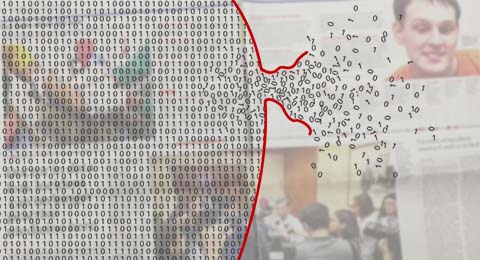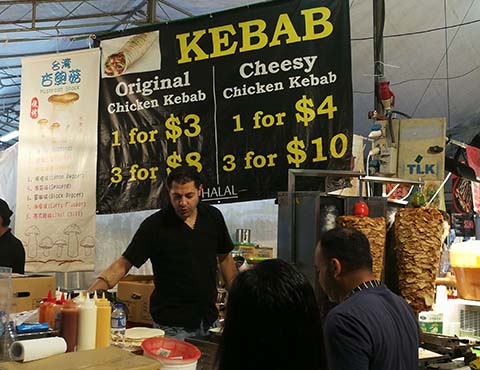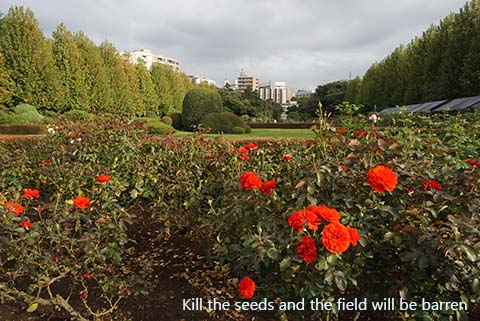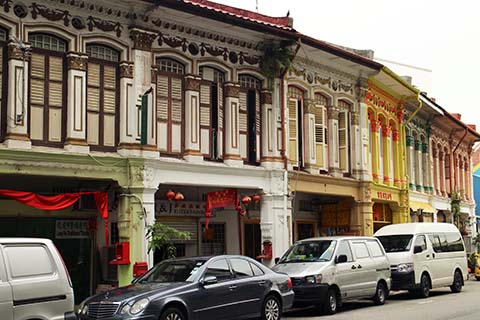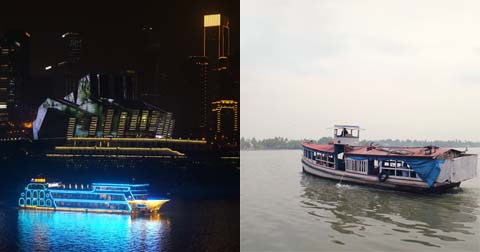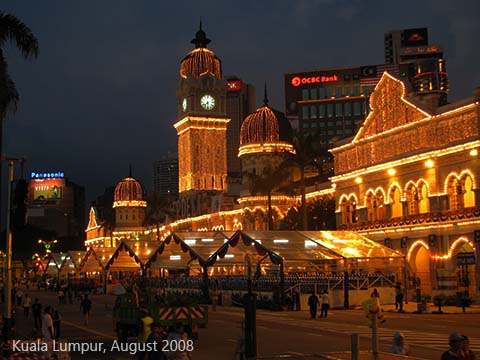
The photo above is of Kuala Lumpur all dressed up to celebrate Merdeka Day. The Federation of Malaya gained its independence on 31 August 1957. That was also the time when Singapore aspired to merge with it, which it did for a short while from 1963 to 1965.
In that era, almost everyone felt that Singapore and the peninsula formed a natural nation. Many people had friends and family across the causeway. Hardly any distinction, in culture and beliefs, could be made between the Chinese in Singapore and the Chinese in Malaya, and likewise for the Indians and Malays. Each felt their community spanned both geographic areas. Continue reading ‘Cantonese speech and food in Kuala Lumpur: culture shock’

